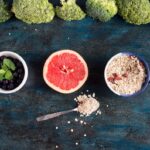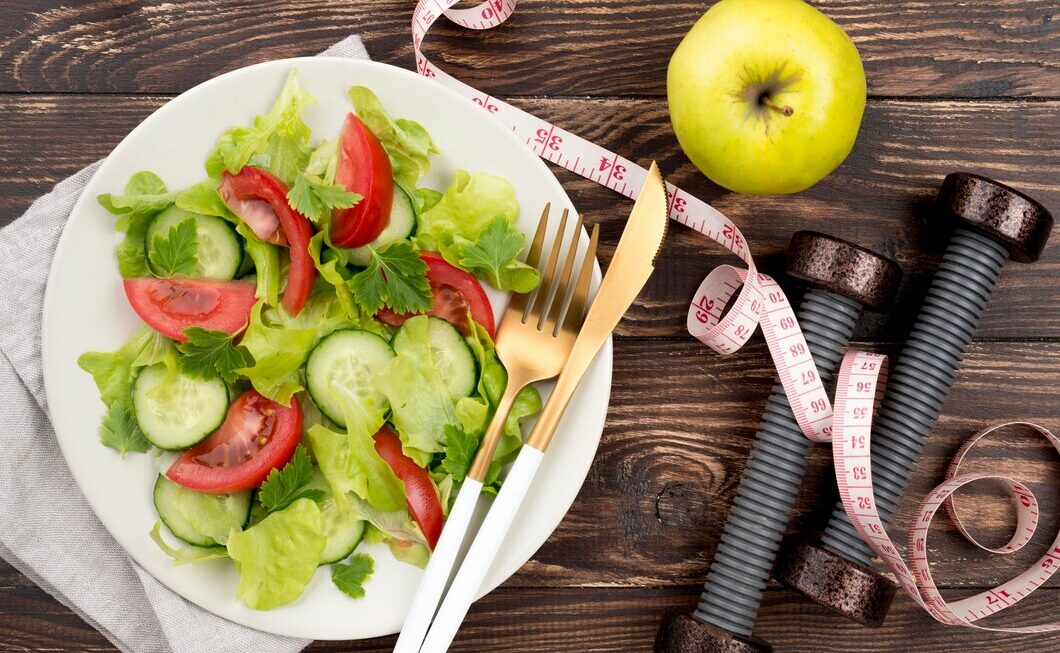Embarking on a weight loss journey can feel like setting out on a grand expedition. There are maps promising quick routes (often leading to dead ends), confusing signs, and the daunting prospect of navigating unfamiliar territory. But what if the journey itself could be nourishing, sustainable, and aligned with deeper values?
Welcome to the exploration of a plant-based diet for weight loss not as a short-term fix, but as a fulfilling lifestyle. Forget crash diets and deprivation. This journey is about discovering how embracing delicious, wholesome plant foods can naturally support healthy weight management, boost your energy, and potentially improve your overall well-being, all while being kinder to the planet and its inhabitants.
Think of this guide as your travel companion. We’ll navigate different terrains – understanding the science, aligning our compass with our values, considering the environmental landscape, and mapping out practical daily steps. Whether you’re starting from Jaipur or anywhere else, let’s begin this journey towards a healthier, more vibrant you, fueled by the power of plants.
Your Journey to Weight Loss: A Plant-Based Lifestyle Guide
First Stop: Understanding the Landscape (Why Plants for Weight Loss?)
Our first destination delves into the “why” – the scientific foundation supporting plant-based eating for sustainable weight management. It’s not about magic; it’s about how plant foods naturally work with your body.
- The Calorie Density Advantage: Imagine two plates, both full of food, both weighing the same. One has fatty meat and cheese, the other is piled high with vegetables, beans, and brown rice. Which has fewer calories? Almost certainly the plant-based plate! Whole plant foods are generally less calorie-dense than animal products and highly processed foods. This means you can eat satisfying, voluminous meals without consuming excess calories – a key principle for weight loss without constant hunger.
- Fiber: Your Satiety Ally: Plant foods are packed with dietary fiber, something completely absent in animal products. Fiber adds bulk to your meals, slows down digestion, helps stabilize blood sugar levels, and keeps you feeling fuller for longer. This natural appetite regulation is crucial for sustainable weight management. Think of the satisfying fullness after a hearty bowl of dal or a large vegetable sabzi with whole wheat roti.
- Nutrient Density Power: Plant foods are rich in vitamins, minerals, antioxidants, and phytonutrients relative to their calorie content. When you focus on whole plant foods, you nourish your body deeply even while managing calorie intake, supporting overall health and energy levels crucial for an active lifestyle.
- Metabolic & Gut Health Boost: High-fiber plant diets promote a healthy gut microbiome. These beneficial gut bacteria influence metabolism, inflammation, and even appetite regulation, potentially creating an internal environment more conducive to weight management.
- Reduced Intake of Problematic Components: By default, a vegan diet eliminates dietary cholesterol and often significantly reduces intake of saturated fats (found mainly in animal products), both linked to various health issues beyond just weight.

Nutritional Deep Dive: Calorie Density Explained
Calorie density refers to the number of calories per unit weight of food (e.g., calories per 100 grams).
- Low Density: Watery fruits and vegetables (cucumbers/kheera, spinach/palak, tomatoes/tamatar, melons) have very low calorie density – you can eat large volumes.
- Medium Density: Starchy vegetables (potatoes/aloo), whole grains (rice, roti, millets), legumes (dal, chana, rajma) have medium density – providing energy and satiety.
- High Density: Oils, nuts, seeds, avocados, fried foods, cheese, fatty meats have high calorie density – small amounts contain many calories. A plant-based diet focused on low-to-medium density whole foods allows for satisfying portions while naturally managing calorie intake.
Voice of Experience (Nutrition Scientist): “The principles behind plant-based weight loss are sound: lower calorie density allows for larger, satisfying meals; high fiber promotes satiety and gut health; and the emphasis on whole foods delivers essential nutrients. It shifts the focus from restriction to abundance of healthy choices.” – Dr. Priya Singh, PhD (Nutrition)
Reflective Question: How does understanding calorie density change your perspective on portion sizes for vegetables versus high-fat foods?
Crossing the Bridge: Where Nutrition Meets Mindset
Knowing why plant-based eating works for weight loss is just the first step. Sustainable change requires more than just nutritional knowledge; it involves our mindset, motivations, and values. As we cross this bridge, we explore the powerful connection between what we eat and how we approach this lifestyle change. Why are we doing this? What keeps us going beyond just a number on the scale?
Second Stop: The Ethical Compass (Motivation & Mindset)
This stop explores the inner landscape – the motivations and mindset that fuel a sustainable journey. While weight loss might be an initial goal, connecting to deeper values can provide powerful, lasting motivation.
- Intrinsic Motivation: Relying solely on weight loss goals can lead to frustration if results fluctuate. Tapping into ethical motivations – compassion for animals, concern for the environment, a desire for vibrant health – provides a deeper, more resilient “why.” When your choices align with your core values, sticking with them becomes intrinsically rewarding, regardless of daily scale readings.
- Beyond the Scale: Health & Vitality Focus: Shift the focus from purely weight loss to overall health gains – increased energy, better digestion, improved blood markers, feeling lighter and more vibrant. Celebrate these non-scale victories! A plant-based lifestyle is about thriving, not just shrinking. This aligns with a body-positive approach, valuing health and function over just appearance.
- Mindful Eating Practices: Veganism often encourages greater awareness of food choices. Cultivate mindful eating: pay attention to hunger and fullness cues, savor flavours and textures, eat without distractions. This helps regulate intake naturally and builds a healthier relationship with food, moving away from mindless consumption or restrictive dieting cycles.
- Self-Compassion: Lifestyle changes take time. There will be challenges and imperfect days. Approach the journey with self-compassion, celebrating progress over perfection. This ethical consideration towards yourself is crucial for long-term success.
Voice of Experience (Vegan Lifestyle Coach): “Many people start exploring plant-based eating for weight loss, but they stay because they connect with the broader benefits – feeling more energetic, aligning with their values of compassion, contributing positively to the environment. This deeper motivation makes it a sustainable lifestyle, not just a temporary diet.” – Anand Sharma, Wellness Coach
Reflective Question: Beyond weight loss, what other motivations (health, ethics, environment) resonate with you for exploring a plant-based lifestyle?
Navigating the Terrain: Environmental Footprints & Sustainable Choices
Our journey now takes us through the environmental landscape. Choosing plant-based foods for weight management is inherently a more sustainable path, lightening our footprint on the planet.
- Lowering Your Foodprint: The foods central to a healthy vegan weight loss plan – vegetables, fruits, legumes (dal, chana), whole grains (rice, roti, millets) – require significantly fewer resources (land, water) and generate far fewer greenhouse gas emissions than producing animal products (meat, dairy). Every plant-based meal is a step towards a healthier planet.
- Seasonal & Local Advantage (Jaipur Context): Choosing vegetables and fruits that are in season locally minimizes transportation emissions and supports sustainable regional agriculture. Right now (May/early June), look for gourds, okra, tomatoes, cucumbers, onions, melons in Jaipur markets. In winter, embrace carrots, peas, cauliflower, spinach, radish. This reduces the environmental cost associated with out-of-season produce requiring long transport or energy-intensive storage.
- Water Wise Choices: Animal agriculture is extremely water-intensive. Plant-based diets, especially those favouring less thirsty crops like many millets (bajra, jowar – well-suited for Rajasthan) over water-guzzling rice or certain nuts, are far more water-wise.
- Sustainability Fuels Consistency: Knowing your food choices are better for the planet can add another layer of motivation, reinforcing the lifestyle change as positive on multiple levels.
Voice of Experience (Environmental Scientist): “Adopting a plant-based diet is one of the single most impactful actions an individual can take to reduce their environmental footprint. The resource savings in terms of land, water, and emissions compared to meat and dairy production are substantial. Focusing on seasonal, local plant foods amplifies these benefits.” – Dr. Ritu Singh, Climate & Food Institute
Reflective Question: How does considering the environmental impact influence your choice between different plant-based staples (e.g., rice vs. local millets)?
The Practical Path: Daily Steps & Real Life
This is where the journey meets everyday life. Theory is great, but success lies in practical, sustainable habits. Let’s map out the daily steps for plant-based weight loss success in the real world, including the Indian context.
- Meal Planning Power: Planning meals and snacks prevents impulsive unhealthy choices and food waste.
- Template:Aim for meals based on the balanced plate: ½ plate non-starchy vegetables, ¼ plate lean plant protein (dal, chana, tofu, beans), ¼ plate whole grains/starchy veg (brown rice, millet roti, potato), plus a source of healthy fat.
- Simple Ideas (Jaipur Friendly): Breakfast (Millet porridge/Upma with veg, Tofu bhurji), Lunch (Large sabzi + Dal + Roti/Rice, Chickpea Salad), Dinner (Lentil soup + Roti, Vegetable Pulao with Chana, Large balanced salad).
- Template:Aim for meals based on the balanced plate: ½ plate non-starchy vegetables, ¼ plate lean plant protein (dal, chana, tofu, beans), ¼ plate whole grains/starchy veg (brown rice, millet roti, potato), plus a source of healthy fat.
- Embrace Whole Foods: Prioritize vegetables, fruits, legumes, whole grains, nuts, and seeds. Minimize processed vegan junk food (fries, chips, cookies, sugary drinks, mock meats high in fat/sodium) which can sabotage weight loss goals despite being vegan.
- Cook from Scratch & Control Ingredients: Cooking at home gives you full control over oil, salt, and sugar. Learn simple, low-oil cooking techniques. Temper spices (tadka) using minimal oil or even water/broth for some methods. Bake or steam instead of deep-frying snacks.
- Smart Hydration: Drink plenty of water throughout the day. Sometimes thirst is mistaken for hunger. Choose water, unsweetened tea, or nimbu pani (lemon water, easy in India) over sugary drinks.
- Navigating Social Situations (India Context): Eating out or at social gatherings can be challenging.
- Restaurants: Look for dal (ask for no ghee/butter/cream), sabzis (ask for less oil), tandoori roti (usually vegan), salads. Communicate your needs clearly. Many Jaipur restaurants offer vegetarian options easily adapted.
- Gatherings: Eat a healthy snack beforehand. Focus on the vegetable dishes, dal, rice, roti (confirm no ghee). Offer to bring a delicious vegan dish to share. Focus on the social connection, not just the food.
- Restaurants: Look for dal (ask for no ghee/butter/cream), sabzis (ask for less oil), tandoori roti (usually vegan), salads. Communicate your needs clearly. Many Jaipur restaurants offer vegetarian options easily adapted.
- Incorporate Movement: Pair dietary changes with regular physical activity you enjoy – walking, yoga, cycling, dancing. This supports overall health and weight management.
- Patience & Consistency: Healthy weight loss is gradual. Focus on consistent healthy habits rather than perfection. Progress, not speed, is the goal.
Daily Impact Example: A Balanced Plant-Based Day
- Breakfast: Ragi porridge cooked with plant milk, topped with chopped banana, almonds, and chia seeds.
- Lunch: Large bowl of mixed vegetable sabzi (using seasonal gourds/beans), a katori of moong dal (no ghee tadka), 1-2 whole wheat roti. Small salad (kachumber).
- Snack: Handful of roasted chana or some seasonal fruit (mango/melon).
- Dinner: Brown rice with hearty rajma masala, side of steamed greens (if available) or simple stir-fried cabbage.
Voice of Experience (Busy Professional on Plant-Based Journey): “Meal prepping saved me! Every Sunday, I cook a big batch of dal, some brown rice or quinoa, and roast vegetables. During the week, I just assemble bowls, add fresh salad, and maybe some tofu. It makes eating healthy and plant-based totally manageable even with my crazy schedule here in Jaipur.” – Sameer Gupta, Marketing Manager
Reflective Question: What is one practical step – like planning lunches for the week or trying a new millet – you can implement this week?
Journey’s End: Bringing It All Together
Our exploration shows that a plant-based diet for weight loss is far more than a restrictive eating plan; it’s a holistic lifestyle journey. It’s fueled by the science of calorie density and fiber, motivated by compassion for self, animals, and the planet, grounded in sustainable choices, and made real through practical daily habits.
This path focuses on abundance, not deprivation. It celebrates colourful vegetables, hearty legumes, nourishing whole grains, and delicious flavours. Success isn’t just measured by the scale, but by increased energy, improved health markers, a lighter environmental footprint, and the deep satisfaction of living in alignment with your values.
This journey requires patience, self-compassion, and consistency. Embrace the process, celebrate small victories, adapt to your local context (enjoying Rajasthan’s seasonal bounty!), and discover the vibrant health and well-being that a plant-powered lifestyle can bring. You have the map; the next step is yours.
Map for Further Exploration (Related Topics):
- Meal Prepping for Plant-Based Weight Loss
- Guide to Cooking Indian Millets (Bajra, Ragi, Jowar)
- Mindful Eating Techniques for Sustainable Health
- Building Balanced Vegan Meals (The Plate Method)
- Low-Oil Indian Vegan Cooking Techniques
- Navigating Social Events as a Vegan in India












